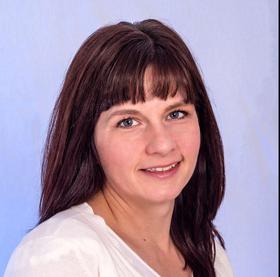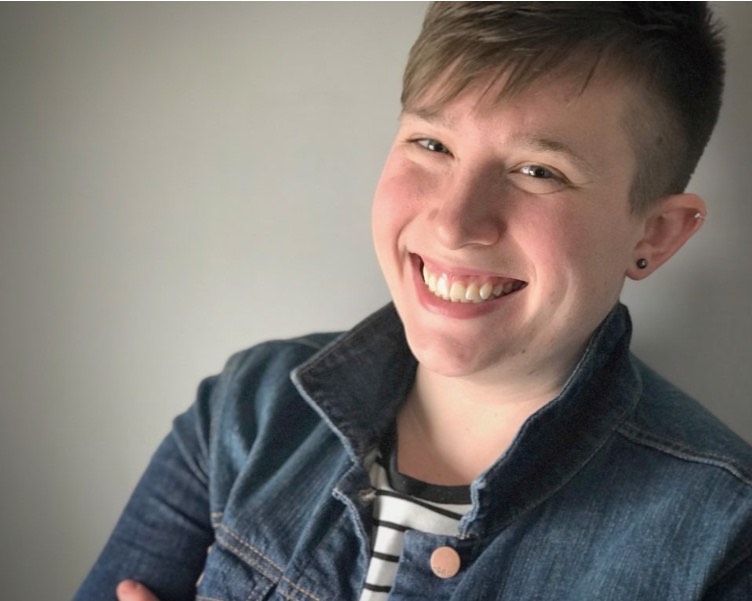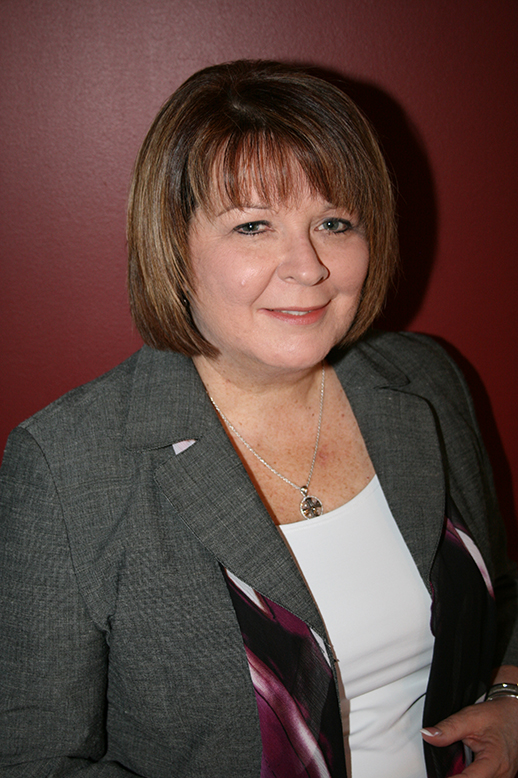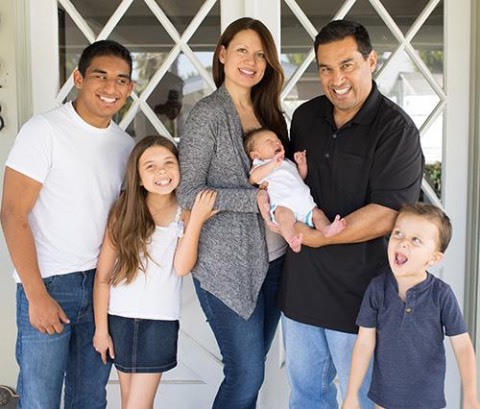Displaying items by tag: housing
A Call for Unity: Building an Undefeatable Movement Through Connection
by Valerie Harkins, Executive Director of Maternity Housing Coalition and Housing Specialist
This past month, we celebrated a milestone in our movement: the 5th Maternity Housing Networking Gathering. This year, forty-nine maternity homes came together to connect, share ideas, encourage one another, and hear the latest news shaping our regions. It was a powerful reminder that when we gather, hope multiplies, courage grows, and innovation spreads.
But here’s the truth—we cannot win if we are working in isolation. A single home might be strong, but a coalition of homes working in connection is undefeatable. That’s why we are declaring “Connection” as MHC’s theme for the coming year. Last year’s theme was “Engagement,” and together we focused on building access to education and equipping resources. We held topical virtual networking meetings, in-person networking meetings with educational updates for housing in that region, sharpened Executive Leadership skills at the Pregnancy Help Institute, completed a 6-week course on launching maternity homes, and developed (to be published) a Trauma-Informed Care training. Now it’s time to put that learning into action.
Why Connection Matters
When one maternity home discovers a new approach, launches a new program, or experiences a breakthrough, that win isn’t theirs alone—it belongs to all of us. Shared victories breathe courage into weary leaders, spark fresh creativity, and remind us that the Lord is moving in this mission.
That’s why MHC wants to hear from you. If your home has recently:
- Started something new or revolutionary
- Found success with a strategy or program
- Learned important news impacting housing
…please let us know! We want to give a shout-out to your work so that the whole maternity housing community can celebrate, learn, and be encouraged.
Opportunities to Connect
This year, there are countless ways for you and your team to step into deeper connection:
- Write a guest article about a topic on your heart for the housing community.
- Host a regional networking gathering at your maternity home.
- Lead a virtual networking gathering for homes across the nation.
- Submit a presentation proposal for our annual conference.
- Volunteer to help host our national networking event at the conference.
And remember, some of the deepest connections are made simply by sharing a meal. Inviting other homes into your world fosters connection—because real relationships are built with feet under the dining table.
New in 2025: Monthly Virtual Prayer Gatherings
We are thrilled to announce a new initiative: monthly virtual prayer gatherings for maternity homes across the country. These will be a time to pray together, intercede for one another, and grow in unity as a movement rooted in Christ. Prayer is not an afterthought; it is the foundation of all we do.
Moving Forward Together
Connection isn’t optional—it’s the very strategy that will carry us forward as a movement. Each home matters. Each leader matters. And together, we are building something that cannot be broken.
So let’s commit to connecting in every way possible this year. Because when we stand united, we don’t just run homes—we run a movement that changes the culture, welcomes life, and builds families for generations to come.
We want to hear from you! Reach out, connect, and let’s walk into this next season—together.
Email: This email address is being protected from spambots. You need JavaScript enabled to view it.
Consultation: Housing Consultation
The Transformative Power of Consistency in Maternity Homes
 by Valerie Harkins, Director of the Maternity Housing Coalition of Heartbeat International
by Valerie Harkins, Director of the Maternity Housing Coalition of Heartbeat International
In the sacred work of nurturing life and fostering growth, maternity homes stand as sanctuaries of hope and transformation. These homes, often serving women who have faced significant challenges and adverse childhood experiences (ACEs), must embody the essence of consistency. As Christian leaders and caregivers, we understand that consistency is not merely a practice but a profound expression of God’s love and faithfulness. This article explores the critical importance of consistency in maternity homes, highlighting its benefits for brain development, stress reduction, and team cohesion.
The Role of Consistency in Brain Development
God has designed the human brain to be incredibly adaptive, capable of healing and growing even after significant trauma. For residents of maternity homes, many of whom have endured ACEs, a consistent environment can be a catalyst for this healing. Consistency helps in the development of new neuropathways, essential for improving executive functioning, regulating anxiety, and reducing negative reactionary behavior. Executive functioning encompasses crucial skills such as planning, decision-making, and self-control. A stable, predictable environment allows the brain to practice and strengthen these skills regularly. Over time, this repetition fosters the creation of new neuropathways, essentially rewiring the brain to operate more effectively and efficiently. Anxiety regulation is another critical benefit. Unpredictable environments can trigger the brain’s fear response, leading to heightened anxiety. Consistent routines provide a sense of safety and predictability, calming the brain’s fear center and reducing overall anxiety levels. This stability is especially vital for individuals with ACEs, whose baseline anxiety levels may already be elevated due to past traumas. Moreover, consistency helps mitigate negative reactionary behaviors. When residents know what to expect, their need to react defensively diminishes. Predictable routines reduce stress, allowing residents to respond more thoughtfully rather than impulsively. This shift from reaction to response is a crucial step in emotional and psychological healing.
The Impact of Consistency on Staff and Team Dynamics
A consistent schedule and daily structure do not only benefit the residents but also significantly impact the staff and overall team dynamics. For staff members, a predictable routine reduces stress and burnout. When caregivers know what to expect each day, they can prepare adequately, manage their time better, and focus more on providing quality care rather than constantly adapting to unexpected changes. This predictability extends to the entire team, fostering a culture of reliability and trust. Consistent routines ensure that everyone is on the same page, reducing miscommunications and misunderstandings. This unified approach enhances teamwork and collaboration, creating a more harmonious and efficient working environment. Moreover, consistency in operations allows staff to model stability for the residents. By demonstrating reliable and steady behavior, staff members become role models for the residents, teaching them the value of consistency through their actions. This modeling is a powerful tool in the residents’ learning and healing process, reinforcing the principles of stability and reliability.
The Science of Creating New Neuropathways
Creating new neuropathways in the brain, a process known as neuroplasticity, is central to the healing journey of residents in maternity homes. Neuroplasticity refers to the brain’s ability to reorganize itself by forming new neural connections. This capability is especially pertinent for individuals with ACEs, as it allows for the reprogramming of brain functions that may have been disrupted by trauma. Consistency plays a vital role in this process. Repeated behaviors and experiences strengthen specific neural pathways, making them more efficient and robust. In a consistent environment, positive behaviors and routines are reinforced, facilitating the development of new, healthier neural connections. This neurological transformation is akin to a spiritual renewal, where old, harmful patterns are replaced with new, life-giving habits.
A Christian Perspective on Consistency
In our Christian faith, we are called to reflect the steadfast love of God in all that we do. Psalm 136:1 reminds us, “Give thanks to the Lord, for he is good. His love endures forever.” This enduring love is a model for the consistency we strive to embody in our maternity homes. By providing a stable and predictable environment, we are mirroring God’s unwavering faithfulness, offering a safe haven where healing and growth can flourish.
In conclusion, consistency in maternity homes is not merely a practical strategy; it is a divine invitation. It supports brain development, reduces anxiety, and fosters positive behaviors in residents. For staff, it creates a stress-free, cohesive, and communicative environment. As we embrace consistency, we are participating in God’s transformative work, helping to create new neuropathways of hope and healing in the lives of those we serve. Let us be steadfast in our commitment to this holy calling, knowing that through our efforts, we are reflecting the unchanging love of our Creator.
The Golden Ticket to Financial Resilience
Presented by Valerie Harkins, Housing Specialist
The pandemic showed us just how delicate our fundraising strategies are to unforeseen events. Many nonprofits found themselves financially vulnerable in 2020 without the ability to host their annual fundraising events or apply for a specific grant upon which they had become reliant. It’s been three years since then, and the trends have continued to speak a sobering message.
Fundraising trends are on the move in 2023. With the turbulence of the economy, the unpredictability of the environment, the shift in the generation of the primary donor base, and adjustments to the new post-pandemic norms, homes are finding that—now more than ever— they have a critical need for diversified revenue streams. Overall, we have seen a national increase in donations; however, this has been matched with an even greater decrease in purchasing power, frequently resulting in a realistic net loss for organizations. As is common during times of economic hardship, the number of individual donors on average has decreased with an increased amount per monetary contribution made. This means we have fewer people making contributions but larger individual contributions, creating an elusive financial projection that appears strong at the bottom line but is built upon what is likely akin to a Jenga tower.
Financial resilience is the golden ticket to stability in this season. This necessitates fundraising strategies built upon multiple revenue streams. A personal recommendation is to maintain an average of five sources of income. This provides you with a broad donor base and the gift of time when catastrophe strikes. Examples include minor events, major events, monthly donors, and grants. To learn more, check out our webinar Diversifying Your Home’s Revenue Streams where we take a deep dive into this topic. And there is no time like the present to strengthen your funding strategy by getting in on the Development Tack at Pregnancy Help Institute. There’s still time!
Help Her Find You!
 Last Spring ushered in a season of fresh air, new blooms, and our favorite—a new tool to help you do what you do best!
Last Spring ushered in a season of fresh air, new blooms, and our favorite—a new tool to help you do what you do best!
The Maternity Housing Coalition has built a first-of-its-kind housing locator tool that allows clients and pregnancy center advocates to search for homes according to location and intake criteria. You can even immediately send an “application” directly to a woman so she can apply to live in your home. This changes everything.
Gone are the days of hunting for a housing referral through a Facebook group or your personal network. Along with it, are the steady phone calls each day when you repeat exactly what your intake criteria are and determine her circumstances. With the application feature in our search tool, our affiliated homes receive an email with a snapshot of the potential client's information including her name, gestation, current location, and even if she currently has a safe place to stay. When you reach out to connect with this young woman, you are already prepared with the information you need to have a successful and fruitful conversation.
Becoming an affiliate automatically gives you access to our housing locator tool. Click here to become an affiliate today!
(Existing affiliates only)
For questions about the Search Tool, please email This email address is being protected from spambots. You need JavaScript enabled to view it.
Insuring Your Maternity Home
Find yourself wondering what insurance is needed for maternity housing? What kind of insurance coverages are needed and what kind of company sells those policies? We dive a little deeper into the topic for you below.
Insurance
Some types of insurance are regulated, others are industry-standard, and others are optional. Getting the appropriate amount of insurance is a balance of risk assessment. Recognize that insurance companies are motivated to sell insurance policies that often represent worst-case scenarios. Likewise, organizations should protect and prepare themselves for challenging circumstances that may arise. Involving Board members with insurance experience in the conversation may help an organization find its “comfort zone.” Insurance companies are a great resource for advice on how an organization can reduce risk. Larger insurance companies may even have a “risk assessment professional” that can do a site visit to offer feedback and suggestions.
General Liability
General Liability insurance is related to accidents that may result in bodily or personal injury or property damage. The cost is determined by the insurer’s assessment of risk based on the number of people involved, the size of the facility, the activities of the organization, etc. In some cases, the organization may ask or be asked to be listed as an “additional insured” for specific reasons (i.e. an event held on a rented property). This is common and easily done by calling one’s insurance agent.
Property Insurance or Renter’s Insurance
Property insurance covers the expense of damage to or destruction of the building and its contents. Various factors affect how a property insurance policy is crafted (e.g. replacement cost vs actual cost). Renter’s insurance, used when a property is being leased, covers solely the contents (not the structure). Organizations must weigh the cost-benefit analysis of valuing the contents at replacement cost, even if donated.
Directors and Officers Insurance
Directors and officers insurance (commonly referred to as D&O Insurance) is insurance for lawsuits due to wrongful acts or mismanagement of the organization most commonly related to employment practices. Requiring the organization to have D&O Insurance is frequently an expectation of experienced Board members.
Automotive Insurance
Any vehicles owned by the organization will need to be insured. If the organization does not own vehicles, it may choose to have a “hired and non-owned” policy that augments the private insurance of volunteers and staff members who may be driving on behalf of the organization. Some drivers and/or vehicles are considered higher risk (i.e. young drivers, 15-passenger vans) and will have higher premiums. Homes are advised to avoid any language related to offering medical care as auto policies have been known to group maternity homes into the costly category of ambulatory medicine.
Professional Liability Insurance
Professional liability insurance addresses the liability related to the professional services of counselors, social workers, and other professionals. If the organization is hiring someone with a professional designation as an employee (rather than an independent contractor), it will need to assume professional liability insurance. The issues related to the scope of practice, covered elsewhere, are critical for this reason.
Life Insurance
Organizations may choose to take out a life insurance policy on a key employee(s) and name the organization as the beneficiary. This is done if the death of the employee would have a very substantial and immediate impact on the organization.
Worker’s Compensation
Worker’s compensation provides coverage for job-related injuries and illnesses and may be required by law depending on jurisdiction and the number of employees.
Life-Affirming Insurance Companies
Heartbeat has a list of preferred insurance companies that have worked well for pregnancy help organizations for years. Click here to learn more.
This and more amazing resources for homes are included in Maternity Housing Essentials - Heartbeat's key resource for anyone starting or maintaining a maternity housing program.
Pushing the Boundaries: The First US Academic Research Study on Maternity Housing
 Notre Dame’s Lab for Economic Opportunities (LEO) applies scientific evaluation methods to better understand and unleash effective poverty interventions. LEO works side-by-side with our service provider partners at no cost to design and implement a research approach that’s both rigorous and respectful of every person it involves.
Notre Dame’s Lab for Economic Opportunities (LEO) applies scientific evaluation methods to better understand and unleash effective poverty interventions. LEO works side-by-side with our service provider partners at no cost to design and implement a research approach that’s both rigorous and respectful of every person it involves.
Partnership Summary
LEO has partnered with five homes to launch a randomized controlled trial (RCT) to evaluate the impact of emergency maternity housing. As a byproduct of participating in the study, homes receive grant money, weekly and direct support (both virtual and on-site) and access to the data as they go that can help with fundraising. Limited capacity of the maternity homes involved in the study keeps them from providing every mother in the region they serve with a placement into the maternity home and access to services. To allocate beds fairly, the LEO research team introduced a lottery for open beds. Researchers then compare those who do not receive a bed to those who do receive a bed and the home’s services over time. The outcomes that the research team is tracking include the mother’s custody of the new baby, mother’s well-being, housing stability, employment and education as well as well-being of the new baby, through a research approach that’s both rigorous and respectful of every person it involves.
Who is a good fit for the study?
Ideal candidates for this partnership are committed to implementing the already operating RCT at their site and must meet the following criteria:
- Houses serving a total of 15 new moms per year minimum, whether that includes new moms moving in and out, or current moms staying the whole year.
- Houses which are currently operating a waitlist or turning moms away because of lack of beds.
- Must be willing to add research-specific questions to application.
- Must be willing to implement a lottery to give all moms a fair chance of obtaining a bed in the home.
Why Partner with LEO?
Our research is free. You continue to offer services. We pay for research. It’s pretty brave to be willing to test what you do. We don’t want money to be a barrier to learning. You got into this work to make a difference. Impact starts with knowing. We want to support that vision you have for your life and your work. More evidence means more money. Philanthropists are asking more questions about organizational impact. Being able to answer these questions helps you raise money to support your mission. A partnership with LEO allows you to be a better equipped leader and make informed decisions about your program like where to grow or invest. LEO also provides weekly and direct support (virtual and on-site). LEO research is third-party validation of your work and carries the trust of the Notre Dame brand.
Behind the Curtain: Meet the MHC Council

As most of you know, the Maternity Housing Coalition is powered by Heartbeat International to strengthen maternity homes in various stages of development ranging from start-ups to well-established homes. But did you know that the MHC is intentionally guided by a Leadership Council? The Council is made up of maternity housing leaders with diverse representations of staffing models, programs, interdenominational faith practices, and sizes of housing organizations. This generous body of leaders volunteer their experiences and insight to serve the well-being of affiliated maternity housing programs across the country by providing input, guidance, and training opportunities.
Vicki Krnac - Leadership Council Chair
Before coming to Hannah’s Home Vicki was a teacher that specialized in teaching reading to kids with dyslexia. When she was going through a personally challenging time of life, Jesus became very real to her and taught her that He was always there and loved her. As she learned more about Him, and His work of salvation and how that affected her life, God called her to serve at Hannah’s Home on the Board of Directors. It wasn't long before she realized that as a single mom God was calling her to use her gifts to serve women who were hurting and broken like herself. She serves at HH because God has called her there and she seeks to live her life by doing what He asks of her. She loves each of the women as if they are her own children. The relationships that are formed give her hope and keep her going.
Amber Hornsby
Amber has a degree in Social Work and has been serving for 10+ years in the US and internationally in human resources and service projects. Her prior work experiences have developed her current skill sets to work with people across demographics, relationally and administratively. Amber’s role within ESTHER Homes is not only administrative, but she works and lives with the families to map out and research different resource options that best meet their direct needs.
Peggy Forrest
Peggy Forrest has served as President of Our Lady’s Inn since 2011; and in 2019 was named President & Chief Executive Officer. In this leadership role she oversees all executive functions to include administration, development, finance, human resources, and in conjunction with the Board - strategic planning. Peggy has more than thirty years of business experience in the corporate environment, demonstrating excellence in executive leadership.
Peggy has been a lifelong pro-life advocate, participating in prayer and advocacy efforts for the unborn which includes presenting testimony before Missouri State Legislative committees considering pro-life legislation. With Peggy at the helm, Our Lady’s Inn took the lead in filing a lawsuit against the City of St. Louis following its enactment of “abortion sanctuary city” ordinances; the City was defeated in federal court. Since her tenure at Our Lady’s Inn began, she has been instrumental in the opening of a number of maternity homes in Missouri and surrounding states.
Leona Bicknese
Leona Bicknese has been working with women in crisis since 1998. She says one of the major blessings in her life has been serving as director of three maternity homes. She has also served as Chief of Operations of a PRC. She earned a BS in Business, an MBA and a Doctor of Biblical Studies in Biblical Counseling. Leona currently serves as President/CEO of Road 2 Hope Maternity Home in Beaverton, OR. She is blessed to serve on the leadership teams of the Maternity Housing Coalition and the Colson Center for Christian Worldview - Portland Cohort.
Sue Baumgarten

She also serves nationally on the Maternity Housing Coalition’s Leadership Council (2019-present) and The National Christian Housing Conference Leadership Team (2017-present).
Beckie Perez
Beckie Pérez is wife of Mike and mother to four children. A San Diego native, Beckie is the co-founder of the 29:Eleven Maternity Home (along with her husband) which opened in 2017. In addition to serving as 29:Eleven’s Executive Director, Beckie also serves on the Leadership Council of the Maternity Housing Coalition. Of her professional achievements which include a B.A., M.A. and California Teaching Credential, Beckie is most proud of her designation as a Life Affirming Specialist (LAS) through Heartbeat International.
Suzanne Burns
Suzanne Burns, MS, CFTP founded and leads a thriving maternity home in Tennessee. This home has served over 120 mothers and their children through residential services and an additional 500 families through its non-residential program. Suzanne and her team also manage a job training program, where clients are employed while they gain hands-on, practical job skills.
Suzanne now trains compassionate, overwhelmed kingdom leaders to start maternity homes in their own communities. Suzanne has trained hundreds of teams to implement practical tools to transform the lives of mothers in crisis.
Question from the reader: Is there a way to make sure that there will always be even one resident in the house? Sometimes a month goes by and my house is empty. Am I doing something wrong?
 There has been quite a bit of buzz around this topic since the beginning of the COVID-19 Pandemic. Ministries across the country have found themselves on vacillating ends of the spectrum between empty and full houses with burgeoning waiting lists. So why the variance?
There has been quite a bit of buzz around this topic since the beginning of the COVID-19 Pandemic. Ministries across the country have found themselves on vacillating ends of the spectrum between empty and full houses with burgeoning waiting lists. So why the variance?
I recently spoke with homes from different regions of the country, each with varied programming models, ministry models, and eligibility criteria. I found that the homes with low occupancy rates (For the purposes of this writing, “low” will be less than 25%) repeatedly described their experiences of receiving calls from women in the community inquiring about their home or even interviewing some women, however, these women did not meet the criteria to be eligible to move into the home. Reasons ranged from past or current drug use, criminal record, previous pregnancies, previous children removed from care, children currently in care, or perhaps a generally poor attitude. Needless to say, this can be an exhausting daily merry-go-round for ministries.
Question from the reader: Donors and grantors are asking me to provide metrics on the impact and success of our housing ministry. How do I measure this and where do I start?
Many of us serving in maternity housing ministries have found ourselves in similar shoes! The lives of our residents can be complicated and the definition of “success” is admittedly subjective. Using a tool such as the Evaluation Matrix for Maternity Homes, which you will find cost-free in the Heartbeat affiliation tools for maternity homes, can help to provide an objective and quantifiable measure of progress in the lives of residents.
It is important to provide data on a few specific outcomes that are directly related to your mission statement, typically about 3-5 outcomes. Our recommendation is to internally measure a wide variety of indicators (about 10-15) and externally present the selected few. This will help guide the public in awareness of specifically how your mission statement is affecting the community as well as keep you equipped with relevant data about many areas of a resident’s progress to have on hand for conversations with donors.
Question from the reader: Our search for staff has been difficult. We’ve come up empty after months of looking and getting desperate. What do we do?
Great topic of discussion here. First, I’ll share that you are not alone. This is the most common place of exasperation among maternity housing ministries that I hear of on a regular basis! Several factors may play into this, chief among them being our high rate of unemployment nationally at this time. Most communities are facing labor shortages with ministries not being any different.
So, what to do to keep the ship afloat during the storm? While we have a shortage in labor, we ironically do not have a shortage of unpaid labor in most communities! My recommendation is to make the most of this season to build a first-class volunteer program in your ministry. A thriving volunteer program can bolster every aspect of your ministry from recruitment, evangelism, programmatic operations, and especially development/fundraising.




